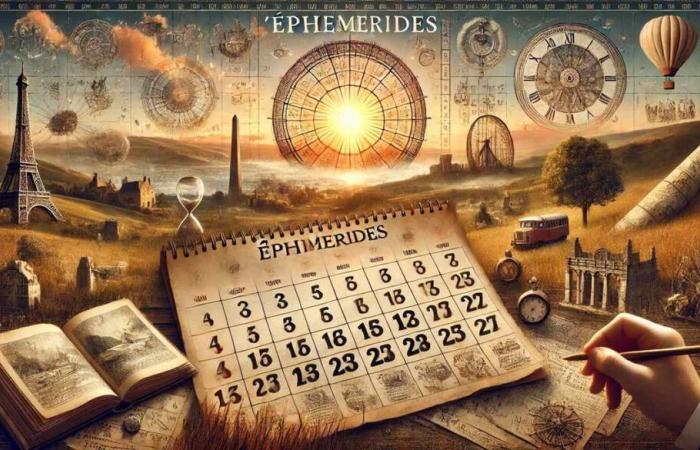Par
instead
| 11 hours ago
Facebook
Twitter
LinkedIn
WhatsApp
A date marked by the origin of the Christian calendar
December 25 is the conventional date of the birth of Jesus of Nazareth, set in the year 354 by Pope Liberius. This choice gave birth to our so-called “Christian” era.
However, modern historians estimate that this event took place between 7 and 5 BC, during the reign of Emperor Caesar Augustus. This date was also chosen to coincide with pagan Roman festivities, such as Sol Invictus, symbolizing the victory of light over darkness.
1582: the Gregorian calendar modifies the course of time
December 25, 1582 marks a unique event in the history of time. In the Spanish Netherlands, the switch to the Gregorian calendar caused December 14 to be followed directly by December 25, thus removing ten days from the Julian calendar to adjust the solar year. This reform, decided by Pope Gregory XIII, aimed to correct the gap accumulated by the previous calendar.
1758: Halley's Comet lights up the Christmas sky
On December 25, 1758, the famous Halley's Comet, predicted by the British astronomer Edmond Halley, appeared in the sky. Its periodic reappearance, approximately every 76 years, illustrates the precision of the scientific calculations of the time and confirms the laws of gravitation.
1797: Bonaparte and science
On December 25, 1797, Napoleon Bonaparte, then general, was elected to the Institut de France. This moment illustrates Bonaparte's interest in sciences and his role in their promotion, notably through the expedition to Egypt, which will combine military conquest and scientific research.
1831: the slave revolt in Jamaica
In 1831, Jamaican slaves launched a major revolt against their oppressive living conditions. This event, which begins on December 25, marks a turning point in the history of the struggles for the abolition of slavery in the British colonies.
1941: Hong Kong capitulates to the Japanese
On December 25, 1941, Hong Kong surrendered to Japanese forces after seventeen days of intense fighting during World War II. This day, known as “Black Christmas”, symbolizes a key stage in Japanese expansion in Asia.
1953: the first kidney transplant
On December 25, 1953, French surgeon Louis Michon performed the first kidney transplant on Marius Renard, a young boy. This medical advance paves the way for significant progress in the field of organ transplantation.
1991: the end of the Soviet Union
On December 25, 1991, Mikhail Gorbachev announced his resignation live on Russian television, ending the Soviet Union. This date marks the official dissolution of the USSR, an event which redraws the global geopolitical scene.
2021: the launch of the James-Webb telescope
On December 25, 2021, the James Webb space telescope was successfully launched from the Guiana Space Center by an Ariane 5 rocket. This technological jewel, successor to Hubble, is designed to explore the far reaches of the universe and answer fundamental questions on the formation of galaxies and star systems.
Facebook
Twitter
LinkedIn
WhatsApp
What is happening in Tunisia?
We explain on our YouTube channel. Subscribe!







